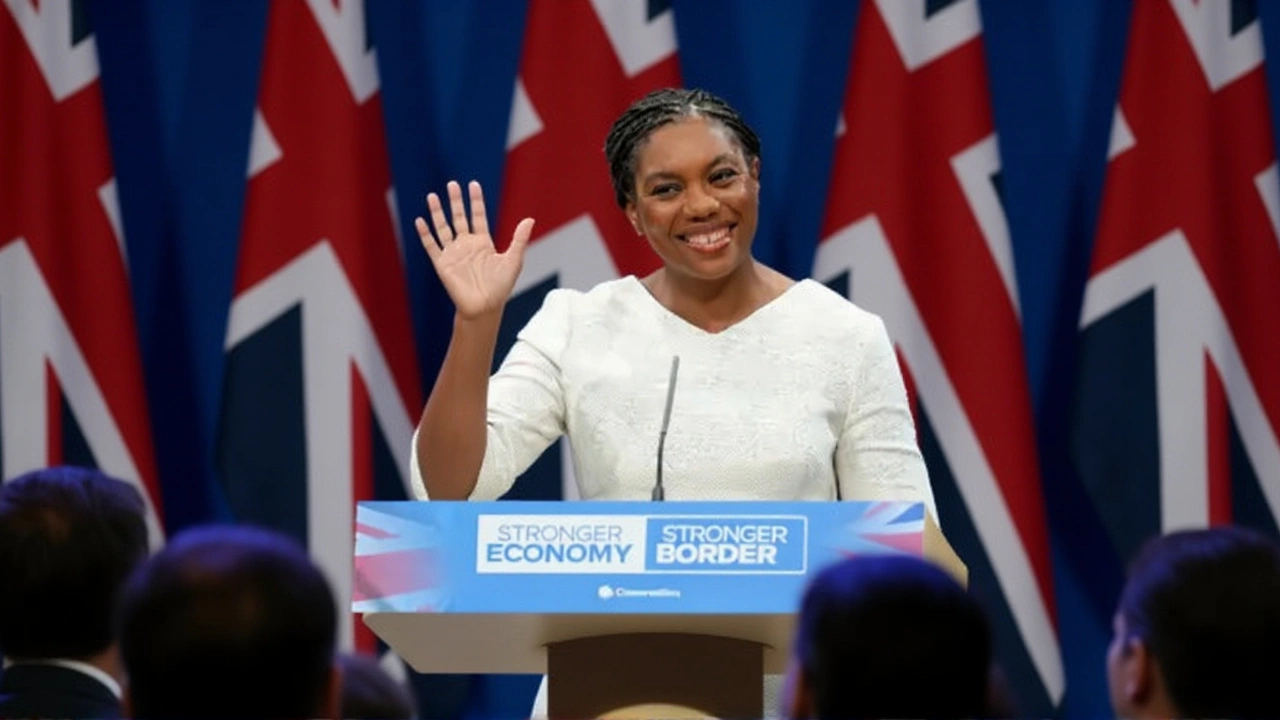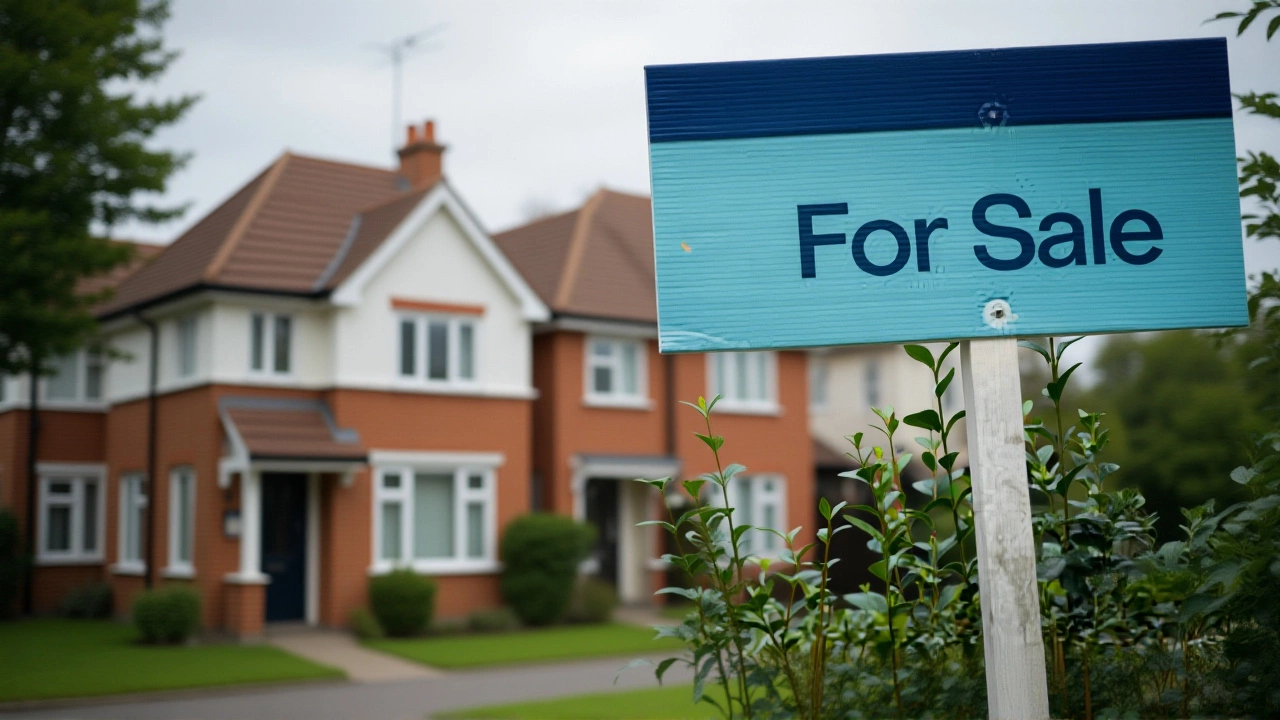Conservative Leader Kemi Badenoch Vows to Cancel Stamp Duty at Manchester Conference
 Oct, 8 2025
Oct, 8 2025
When Kemi Badenoch, Leader of the Conservative Party took the stage at the Conservative Party ConferenceManchester Central Convention Complex on October 8, 2025, she didn’t just close her speech – she dropped a headline‑grabbing promise: the next Conservative government will abolish stamp duty on primary residences. "Conference, the next Conservative government will abolish stamp duty on your home. It'll be gone," she declared, eliciting a roar of applause from the packed hall.
Why the promise matters
Stamp duty land tax (SDLT) currently squeezes home‑buyers in England and Northern Ireland, generating roughly £9 billion a year for the UK Treasury. Critics say wiping it out would be a massive fiscal giveaway, while supporters argue the tax is a barrier to social mobility. The move is framed as a punch‑line to months of criticism that the Conservatives have been “policy‑starved.” By targeting the biggest hurdle for first‑time buyers, Badenoch hopes to re‑energise a party that has seen its support dip below 30 % in recent polls.
Background: From cuts to a full wipe‑out
The 2010‑2015 coalition government first introduced SDLT thresholds, and the 2018‑19 Conservative administration trimmed the rates, helping thousands get onto the property ladder. Yet, as Institute for Government noted in its October 8 briefing, incremental cuts have “simply wouldn’t be enough” to address soaring house prices. Badenoch’s promise therefore marks a stark shift from tweaking rates to removing the tax entirely – a step that would echo the 2002 “temporary” SDLT discount that briefly boosted transactions.
Immediate reactions from the media and experts
Channel 4 News was quick to label the pledge a “£9 billion tax giveaway,” warning that the fiscal hit could force cuts elsewhere or a larger borrowing bill. The broadcast quoted a senior Treasury source saying the policy would need a “credible financing plan” before it could be sold to the public.
Meanwhile, the BBC highlighted the potential upside: "Abolishing stamp duty could make it easier for millions to realise the dream of home ownership," but it also reminded viewers that devolved administrations in Scotland and Wales control their own property taxes, meaning the promise would not apply there.
Economist Thomas Pope of the Institute for Government offered a tempered view. "Abolishing stamp duty has economic merit – it could stimulate demand and lift construction activity – but the revenue loss must be offset, perhaps by narrowing other tax bands or tightening spending," he said.

Political calculus: Timing and strategy
The announcement came at the climax of a conference designed to re‑brand the party after a series of policy‑free months. According to ITV News, Badenoch was “defying critics who said her first leaders’ conference speech should be her last.” By anchoring the housing pledge to a broader economic platform – cutting spending, reversing Labour tax rises, and strengthening borders – she aimed to paint a picture of a disciplined, growth‑focused government.
The proposition also serves a strategic electoral purpose. The next general election is expected before January 2030, and housing is consistently a top voter concern. If the Conservatives can convince swing voters that they will make home‑ownership affordable, they may claw back ground lost in recent local elections.
Fiscal implications and the £9 billion question
Current estimates from the Treasury place annual SDLT revenue at about £9 billion. Abolishing it would therefore require either a boost in other tax streams, a reduction in public spending, or increased borrowing. The opposition Labour Party has already pledged to protect the tax, arguing the loss would hit public services hardest.
- Annual revenue loss: ~£9 billion
- Potential boost to house‑price activity: 5‑7 % rise in transaction volume (based on 2018 temporary cuts)
- Projected impact on first‑time buyers: up to 1 million additional purchases over five years (Institute for Government model)
- Devolved exclusion: Scotland and Wales would maintain their own land transaction taxes.
Whether the Conservatives can craft a financing package that satisfies both fiscal hawks and voters remains the big unknown.

What’s next? From promise to policy
Implementation hinges on three key steps:
- A Conservative victory in the next general election.
- Drafting legislation that modifies the Finance Act to remove the SDLT charge on primary residences.
- Negotiating with devolved governments to respect their tax competencies – a potential flashpoint if Scotland or Wales push back.
The timeline is fluid. If the party wins a snap election in 2027, the policy could be on the books by early 2028. If the next election slips closer to 2029, the fiscal pressure of a £9 billion gap could force a compromise, perhaps a reduced rate rather than a full abolition.
Historical echoes: Tax cuts as political capital
British parties have long used tax reductions to signal economic competence. The 1980s Thatcher government famously slashed income tax rates to underline a market‑driven agenda, while the 1990s Labour “New Labour” era introduced the “right‑to‑buy” scheme for council houses. Badenoch’s pledge taps into that tradition, positioning a bold tax move as a hallmark of a revitalised Conservative brand.
Frequently Asked Questions
How would abolishing stamp duty affect first‑time home buyers?
Removing the tax would lower the upfront cost of buying a home, potentially freeing up millions of pounds for deposits. Institute for Government modeling suggests up to one million additional first‑time purchases could occur over five years, helping to ease the current supply‑demand imbalance.
What is the estimated cost to the Treasury, and how could it be funded?
The loss is pegged at roughly £9 billion per year – the current SDLT haul. Funding options include tightening other tax bands, cutting non‑defense spending, or borrowing. Economists like Thomas Pope argue a mix of modest spending cuts and targeted revenue growth would be needed to keep the budget balanced.
Will the policy apply in Scotland and Wales?
No. Property transaction taxes are devolved, so the Scottish and Welsh governments would retain control over their own regimes. The Conservative pledge only covers England and Northern Ireland, meaning buyers in the other nations would continue paying their respective land transaction taxes.
What political hurdles could stop the abolition?
The biggest obstacle is electoral success – the policy only activates under a Conservative government. Even then, opposition parties and fiscal watchdogs could demand a compromise, and the Treasury would need to present a credible financing plan to avoid a widening deficit.
How does this promise compare to previous Conservative tax reforms?
Previous reforms, like the 2018 SDLT rate cuts, offered modest relief for a subset of buyers. Badenoch’s proposal represents the first time a major party has pledged a total abolition of the tax, echoing the bold tax‑cut rhetoric of the 1980s but targeting housing rather than income.